
Tips for Educating Your Garden Center Customers
Imagine your garden center on a busy weekend next spring. It’s buzzing with life again as gardeners — new or experienced — are anxious to get their hands back into the soil after a drab gray winter. What are they looking for? What landscape issues are they concerned about? What landscape frustration from past years would they like to avoid repeating?
Your team members, adorned in their brightly colored company garb, are nimbly organizing, assisting customers, stocking merchandise and attending to the many needs of your store’s lifeblood. Is your team prepared to answer those questions? How are you preparing them to do just that?
Your garden center can serve as not only a place to buy plants but a key source of information for homeowners who wish to address landscape management issues in their home landscapes — information they might not be able to find at the plethora of competitors who also happen to be selling plants and mulch.
Landscape questions cover much more than landscape design, differences between various cultivars or varieties, and which combination of annuals looks best in a container on the deck. Questions encompass concerns about turf management, insect and disease identification and mitigation, pruning, and other aspects of plant health. And these customer encounters can become not just question-and-answer sessions, but opportunities to discuss what is really going on in the landscape and what approaches are the most appropriate. Whatever the specific reason that brings customers through your doors, these customers come looking for answers.
Staff Training Opportunities
A recent survey of independent garden centers (IGCs) conducted at the University of Nebraska-Lincoln (UNL) offers some insights and reveals potential opportunities regarding staff certifications, seasonal staff training, how IGCs connect digitally or electronically with their customers, and how new or unfamiliar technologies might be used to make serving their customers more convenient. Respondents included garden centers from eight Midwestern states located in population centers (within a 10-mile radius) ranging from less than 10,000 people to greater than 500,000 people, and employing from less than 10 to up to 50 permanent employees. Seasonal staffing levels were reported to range from 75 to 250% of permanent staff levels.
Seventy-two percent of respondents reported that at least one member of their staff has some formal horticultural training such as pesticide applicator; state nurseryperson/landscape professional; state/international arborist; Extension master gardener; or a degree in horticulture, landscape design or landscape architecture.
Individuals holding these certifications or degrees, by virtue of their initial training and, in some instances, requirements for continuing education, serve as a source of reliable, research-tested landscape management information for your customers. There is a high probability someone on your staff holds one of these certifications. Find out what it is and use this knowledge to your competitive advantage by highlighting the expertise of your staff to your customers.
If this is an approach already used at your garden center, attempt to match the individuals and their areas of expertise with their job duties. Give them a chance to shine in their area of personal interest and their enthusiasm will be evident to your customers. For example, a staff member trained as a pesticide applicator would be a great asset at the chemical shelves. Their familiarity with labeling and the necessary safety requirements may provide the clarity sought by the homeowner staring at the numerous shelves of chemical products, wondering where to even begin.
Or perhaps you have someone on your staff who has horticultural training and is a wealth of knowledge and experience but is uncomfortable interacting with customers. Perhaps they can serve as a mentor to staff with less horticultural experience but who are more at ease with the retail sales environment.
Essential Staff Skills
An alarming finding of the survey revealed that 28% of the respondents provide no landscape management training to their seasonal staff. Given the heavy reliance of many garden centers on seasonal staff during the spring season when customer traffic is at its peak, this situation creates the recognizable risk that an inquiring customer may encounter an untrained staff member.
It may be store practice to have seasonal staff defer to permanent or specifically trained staff, but high customer traffic levels on a sunny spring Saturday can quickly derail this approach. Your permanent staff may be already occupied with customers of their own and with other assigned responsibilities that keep the garden center running.
If a customer comes to your garden center looking for information — perhaps after a sour experience at another retailer — and encounters a staff member who is either uninterested or unable to provide the desired information, will that customer return? Are you willing to take that chance?
This does not at all imply that all your seasonal staff should be trained to answer every customer inquiry. However, some form of training that familiarizes your seasonal staff with potential questions in their area of responsibility increases the probability of both customer and staff satisfaction.
Social Sells
When polled regarding their use of digital platforms, respondents overwhelmingly indicated that Facebook and Instagram were the electronic means used most often to connect with their customers. This was the case for either answering customer landscape management inquiries or providing educational information on topics of interest, such as pollinator gardens or landscape design.
This response mirrors data in the Pew Research Center report, “Social Media Use in 2021,” published in April 2021. YouTube, Facebook and Instagram are the three most frequently used social media platforms by those polled by the Pew study. However, this same data also revealed significant differences in social media usage between age cohorts. For instance, 71% of Americans aged 18 to 29 frequently use Instagram, while usage by those over the age of 65 drops to 13%.
Data from UNL’s IGC survey showed that less than 20% of IGCs polled use YouTube as a part of their social media offerings even though over 80% of Americans frequently use it, including 49% of those over 65 years old. The takeaway here is not to change your garden center’s digital presence because the Pew Research Center said to do so. Rather, seek to better understand the demographics of your customer base and seek to place your marketing and educational information stream in the places where your customers are looking.
Get Comfortable with QR Codes
One of the final survey questions revealed another opportunity for IGCs regarding communicating landscape management information to customers. Only 7% of survey respondents indicated that they use QR codes in their garden centers as a means of providing landscape management information to their customers.
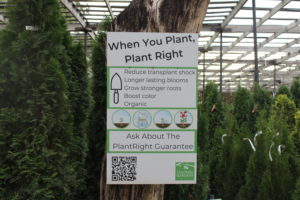
My retail garden center work experience has shown me that many customers come to the garden center prepared to use their smartphones as an integral part of their shopping experience. They may show your staff pictures of a problem spot in their landscape, seeking a solution for a problem. They may have pictures of a specific landscape design they want to implement. They may also use their phones to conduct additional research as they shop.
QR codes are easily generated and serve as quick links to website content determined by the creator of the code. For example, a seasonal product display about bagworm control could direct customers, via a QR code, to your store’s website, where the customer would quickly find you and your staff’s approach to bagworm control: when to begin monitoring for bagworm activity, how to treat bagworms, and what treatment options are available. The intent is not to avoid customer contact, but instead to provide self-serve educational opportunities for your customer demographic who are comfortable with this use of technology.
Your IGC, as a horticulture center of excellence, can differentiate itself from other local retailers that offer many of the same landscape plants and supplies. Knowledgeable and trained staff, targeted communication strategies matched to your store’s demographics, and effective use of technology to provide accurate landscape management information are means by which you can establish your garden center as the destination for landscape answers. While sometimes the competition can beat you on price, don’t let them beat you when it comes to preparation and knowledge.
For an enhanced reading experience, view this article in our digital edition.


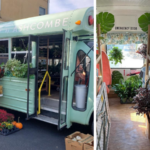
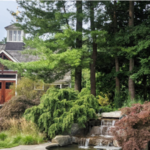


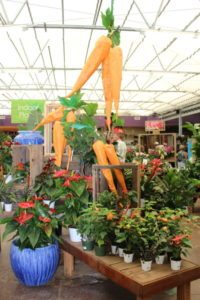
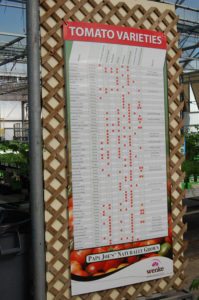
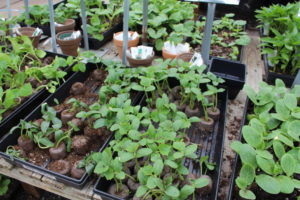

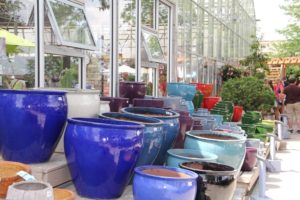
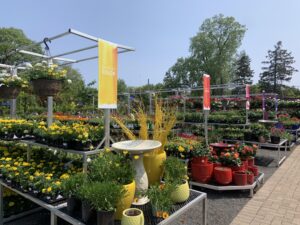
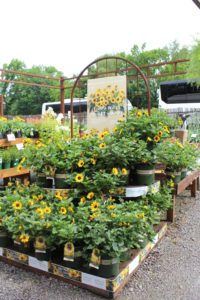
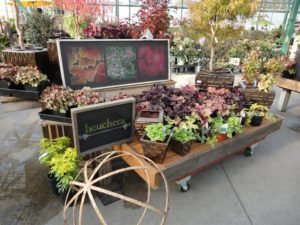
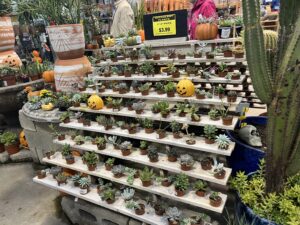
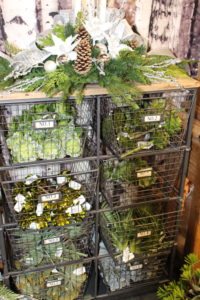
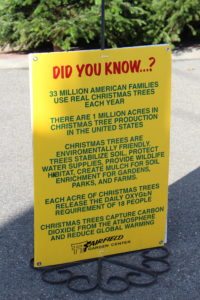
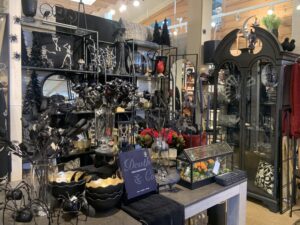
 Videos
Videos





